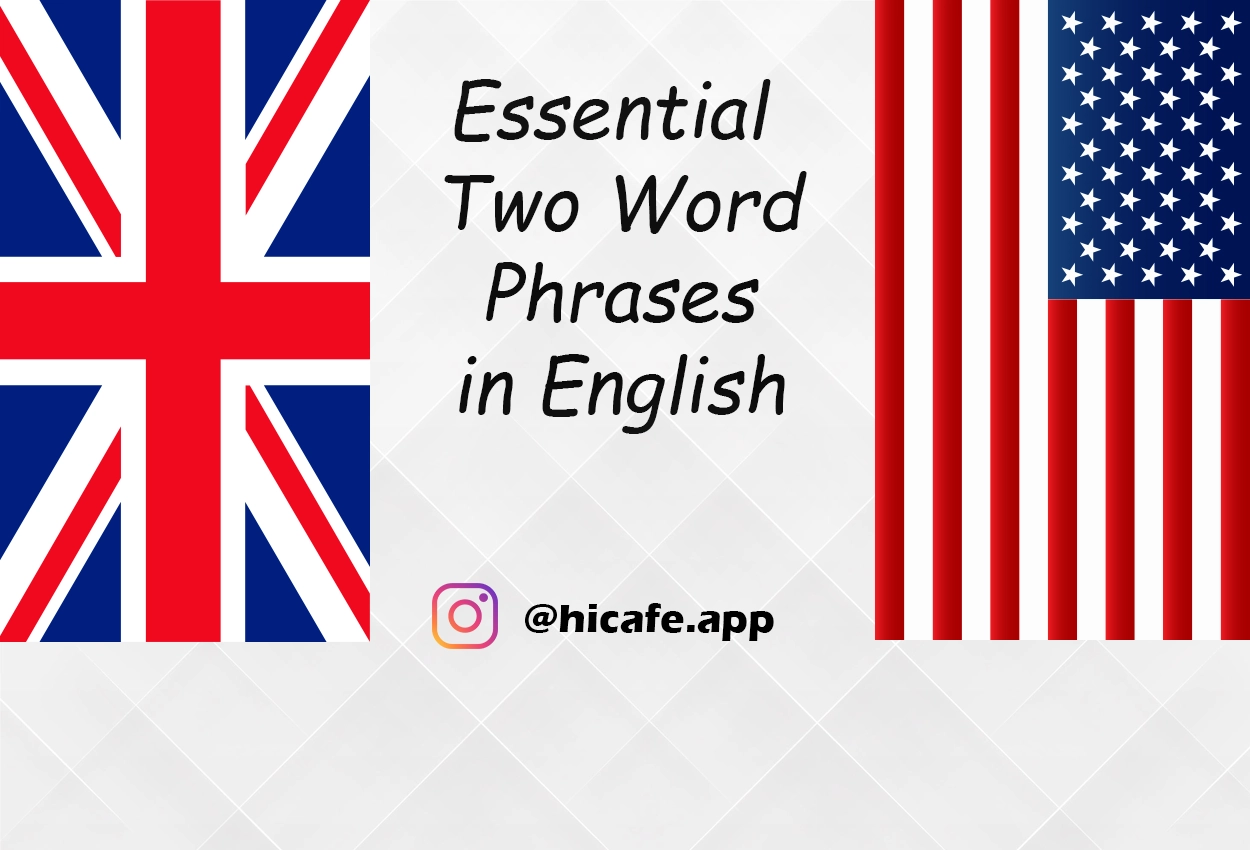
In everyday conversation, two-word phrases are widely used to express various ideas and situations. These phrases often carry a specific meaning that may not be immediately apparent from the individual words alone. Let’s explore some common two-word phrases and their contexts in spoken English.
Previous Conversation Tip Lesson
Talking About Holidays in English
Common Two Word Phrases in English
Here are 15 of the most common two word phrases:
Click here to practice this conversation tip in Instagram.
- So-so = OK.
How was the movie?
It was so-so – the plot was interesting, but the pacing was a bit slow.
- On-off = not constant.
Their internet connection is so on-off – it’s frustrating when it cuts out randomly.
- Love-hate = having feelings for someone / something which swing from love to hate.
I have a love-hate relationship with summer – I love the sun but hate the heat.
- Mish-mash = when things are combined together and so appear untidy.
The new restaurant menu is a mish-mash of different cuisines, offering everything from sushi to burgers.
- Riff-raff = quite a ‘snobby’ expression to describe people you think are lower in class than you.
Let’s keep this event exclusive, we don’t want any riff-raff causing trouble.
- Chit-chat = small talk or unimportant conversation.
During the meeting, there was a lot of chit-chat before we got down to business.
Click here to practice this conversation tip in Instagram.
- Knick-knack = an ornament.
Her shelves were filled with knick-knacks collected from her travels around the world.
- Ship-shape = everything in its right place.
Before guests arrive, I want the house to be ship-shape with everything in its proper place.
- Zig-zag = diagonally.
The motorcycle navigated the winding road with sharp zig-zag turns.
- Ding-dong = an argument.
After the disagreement, there was quite a ding-dong between the neighbors.
- Higgledy-piggledy = in a mess.
The toys in the playroom were all higgledy-piggledy, scattered everywhere.
- Wishy-washy = weak opinion, argument or person.
Her stance on the issue seemed wishy-washy and indecisive.
Click here to practice this conversation tip in Instagram.
- Easy-peasey = something that children often say to emphasise how easy something is.
Learning to ride a bike was easy-peasey for him – he got the hang of it in no time.
- Flip-flops = rubber sandals with a thong that goes between your big and second toe.
I packed my flip-flops for the beach vacation to walk along the sand.
- See-saw = something that goes up and down (like the piece of wood in a playground – a child sits on each end and these ends go up an down).
The prices of the stock market have been see-sawing over the past month.
Conclusion
From describing relationships to expressing opinions, these expressions offer a fun and effective way to enhance your English vocabulary. So, go ahead and start using these phrases – you’ll be surprised at how much they can brighten your conversations!
Next Conversation Tip Lesson
Related Conversation Lessons
None
Practice Conversation with HiCafe App
By using HiCafe App, you can join free discussion events and Practice English Conversation online or in-person and improve your verbal skills.
All Conversation Lessons
To see and read all of our conversation lessons, you can visit our Improve English Speaking Skills page.


